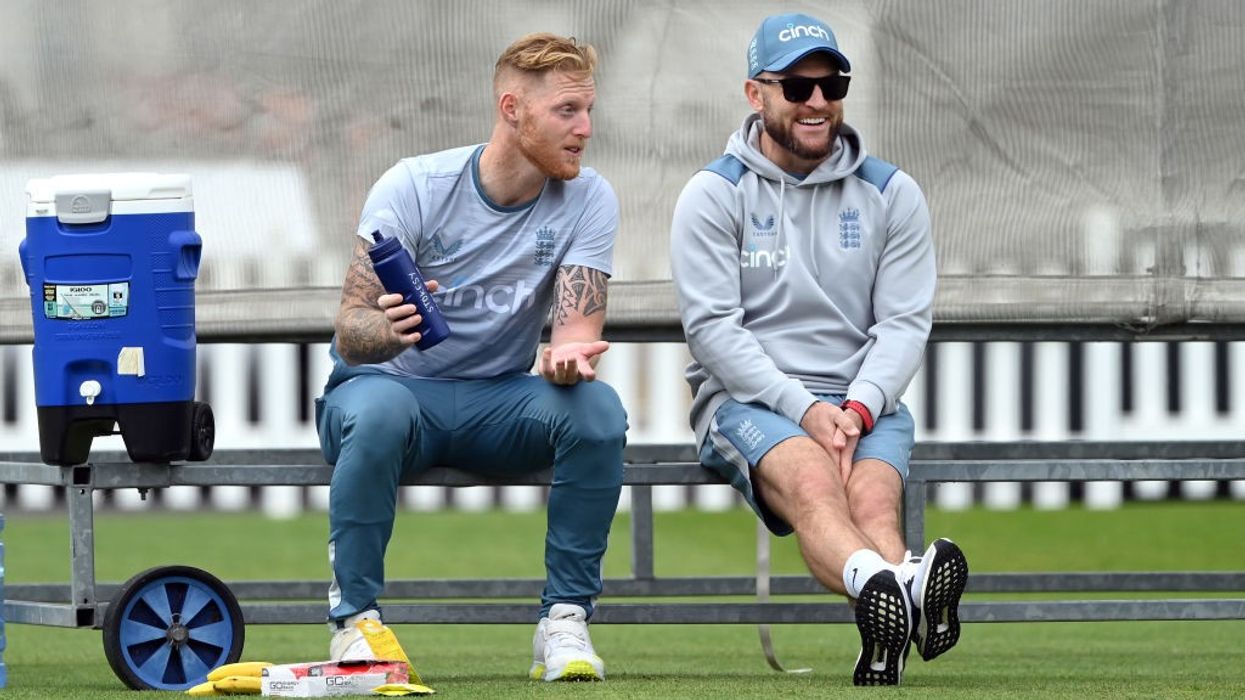England's Test coach Brendon McCullum views Ben Stokes' abrupt decision to retire from ODIs as an "absolute positive" but is not sure if this would become a trend for other players, given cricket's taxing schedule.
The 2019 Word Cup final hero Ben Stokes on Monday made a surprise announcement to retire from the 50-over format, saying playing three formats has become "unsustainable" for him.
"Yeah of course I am," McCullum told SENZ Breakfast when asked if he was happy with Stokes' decision.
He was asked if Stokes' move could become a trend for other players around the world.
"There are not too many all-format players," the former New Zealand captain said.
"He's probably in a luxurious position that he's able to do that, but also with the demands of the schedules and with his heightened schedule as Test captain, it would've become too much. He also has a young family and there's a lot going on.
"I don't know if it's symbolic of where the game itself is at around the globe, but I see it as an absolute positive, to be honest.
"I'm looking forward to being able to spend even more time with 'Stokesy' trying to get this thing cracking."
It came as a shock to many given his age -- he is only 31 -- but McCullum looked at Stokes's one-day retirement differently.
"Obviously we would've loved to see Ben Stokes playing in three forms of the game, he's an out-and-out superstar and we've seen what he's been able to achieve, but sometimes things have to give way and I look at it as a positive that he's going to have the time to really immerse himself in the Test side."
Stokes' ODI career will forever be remembered for his Player-of-the-Match performance in the World Cup final against New Zealand at the Lord's three years ago.
His unbeaten 84 helped to send the match into a Super Over as England claimed their first 50-over World Cup title in the most thrilling of circumstances.
McCullum said, "Stokes is the skipper of our Test side and the job that I've seen him do with this team in a very short period of time really excites me about what he can do with this side, particularly now that he'll have more available time rather than jumping from series to series to series.
"I guess England's a slightly different set-up to most other world cricket teams because they play a lot of cricket, they're a wanted commodity around the world and they're able to generate such a fan following and also the financial returns that the game requires to support 16 Counties and the big organisation that is English cricket."
Stokes, who succeeded Joe Root as England's Test captain, scored 2919 runs in 104 ODIs and took 74 wickets.
McCullum was happy that Stokes quit one of the white-ball formats to focus on the traditional format.
"I also think it's a real mark of respect of the man that he's sort of bucking the trend of the short version of the game and actually trying to focus on what he sees as a huge task trying to get Test cricket back to the levels, or even exceed the levels, that it's had in the past.
"I think it's a noble play from him," McCullum said.
(PTI)












